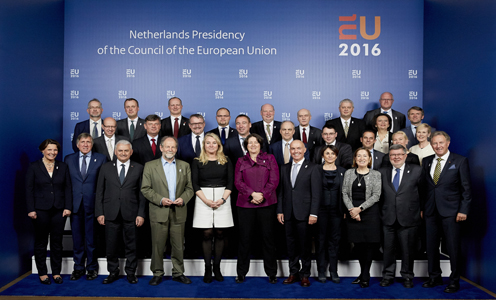Informal Council Meeting of EU Transport Ministers in Amsterdam
Spain backs EU encouragement of automated and driverless vehicles
News - 2016.4.14
In her speech at the council meeting, the Minister for Public Works expressed Spain's support for the Amsterdam Declaration, the first EU text on cooperation in the field of automated and connected driving.
One of the main objectives for this declaration would be to ensure a commitment from Member States on establishing a European framework on automated and connected driving to enable all the necessary technical and legal requirements to be met by 2019.
The main benefits to be gained from automated driving are increased road safety and road transport efficiency to help reduce congestion (and, consequently, the environmental impact), as well as improved integration for the disabled.
"Smart cooperative transport systems bring benefits that the transport sector simply cannot ignore", said Ana Pastor.
Spain, a leader in automated driving
Spain already has a leading and mature regulatory framework in this regard, as regulations were approved in November 2015 that establish a legal framework that enables tests to be conducted with autonomous driving vehicles on public roads in Spain.
In her speech, the Minister for Public Works referred to the first automated driving experience in Spain, which took place in November 2015 and consisted of a driverless car travelling from Vigo to Madrid - a journey of 599 kilometres.
"This journey was made possible by the institutional support being given by Spain to this kind of initiative, at both national and regional levels, and the degree of involvement from technology centres in conducting the tests", said Ana Pastor.
In this regard, the Spanish minister offered Spain's experience in this field and Spain itself to the European Union for the implementation of pilot schemes. Spain has a significant automotive industry, as well as major research centres, universities and infrastructure operators that will be able to benefit from this initiative.





